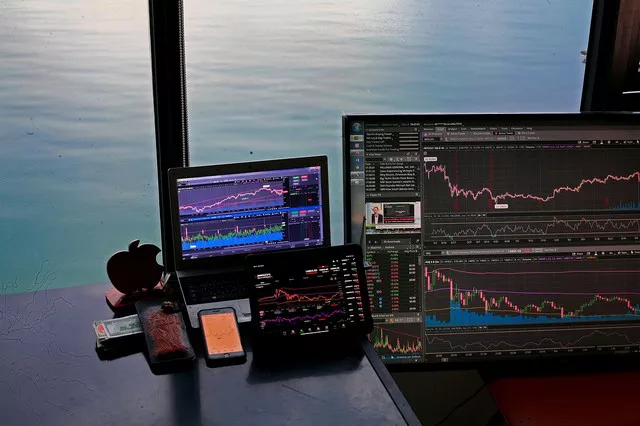Futures trading is a dynamic and integral component of the global financial markets. It allows investors and traders to speculate on the future price movements of various assets, including commodities, currencies, and indices. One unique feature of futures trading is its accessibility throughout the week, including weekends.
The Global Nature of Futures Trading
Futures trading is a truly global phenomenon, with markets operating around the clock, five days a week. The reason behind this extended schedule lies in the diverse geographical locations of market participants. Futures markets are spread across different time zones, from Chicago and New York to London, Singapore, and beyond. This global dispersion ensures that futures trading never truly sleeps, allowing traders to respond to breaking news and events from around the world.
Trading Hours on Regular Business Days
Before diving into the details of Sunday trading, it’s essential to understand the typical trading hours for futures markets on regular business days. In the United States, for example, the most actively traded futures market is the Chicago Mercantile Exchange (CME), which offers various futures contracts, including those on equity indices, interest rates, and agricultural commodities. CME’s regular trading hours for equity index futures, such as the E-mini S&P 500, are from 9:30 AM to 4:00 PM Central Time (CT) on weekdays.
However, futures trading extends beyond these regular hours through electronic trading platforms. After the closing bell at 4:00 PM CT, futures markets continue to operate electronically, allowing traders to access the market until 4:15 PM CT. This period is known as the “post-market trading session.” Additionally, there’s a “pre-market trading session” that begins at 8:00 AM CT, 30 minutes before the regular trading hours, providing traders with early access to market movements.
The Transition to Sunday Trading
The concept of Sunday futures trading might seem unusual, given that traditional stock markets are closed on weekends. However, futures markets operate differently, and the extended trading hours serve various purposes, including risk management for businesses with international exposure.
Sunday futures trading marks the transition from the weekend to the new trading week. It allows traders and investors to react to any significant developments over the weekend, such as geopolitical events, economic data releases, or unexpected news. The opening of futures markets on Sunday evening (in the U.S.) also coincides with the start of trading in Asian markets, creating a seamless flow of information and trading activity across continents.
CME Group and Sunday Trading
One of the most prominent futures exchanges in the world, CME Group, plays a central role in Sunday futures trading. CME Group’s Sunday trading session for equity index futures typically starts at 5:00 PM CT on Sunday evening and runs until 4:00 PM CT on Monday afternoon. This session is often referred to as the “Sunday open.”
The Sunday open on CME Group provides traders with an early glimpse into market sentiment for the week ahead. It’s a critical time for both institutional and retail traders to assess any significant news or developments over the weekend that could impact futures prices. The ability to trade on Sunday also allows participants to hedge their positions before regular trading hours resume on Monday.
While Sunday trading on CME Group primarily focuses on equity index futures, it’s worth noting that other futures contracts, such as those related to commodities, also have specific trading hours on Sundays. These hours may vary among different exchanges and asset classes.
The Importance of Preparing for Sunday Trading
Futures trading on Sunday is not a casual endeavor. Traders who choose to participate in the Sunday open need to be well-prepared and aware of several key factors:
Market Liquidity: Liquidity can be lower during the Sunday open compared to regular trading hours. This means that large orders can potentially move the market significantly. Traders should exercise caution and use appropriate risk management techniques.
Global Events: The Sunday open often coincides with the release of important economic data from Asia and Europe. Traders should be vigilant about how these events may impact futures prices.
Technical Analysis: Given the limited trading activity during the Sunday open, technical analysis can be less reliable. Traders should use additional indicators and consider longer timeframes for analysis.
Risk Management: It’s crucial to have a well-defined risk management plan in place when trading on Sundays. This includes setting stop-loss orders and managing position sizes.
News Flow: Keep a close eyeon news sources for any developments that could impact futures markets. The ability to react quickly to breaking news is a key advantage of Sunday trading.
Conclusion
Futures trading is a global and continuous market that offers unique opportunities for traders, including the ability to trade on Sundays. This extended trading period allows market participants to respond to weekend developments and prepare for the trading week ahead. While Sunday trading can be advantageous, it also comes with challenges, including lower liquidity and the need for careful risk management.
As you consider participating in Sunday futures trading, it’s essential to be well-informed, prepared, and vigilant. The ability to access the futures markets on Sundays is a testament to the interconnectedness and dynamism of the global financial system. By understanding the timing and nuances of Sunday trading, traders can make informed decisions and navigate this crucial part of the futures market with confidence.


